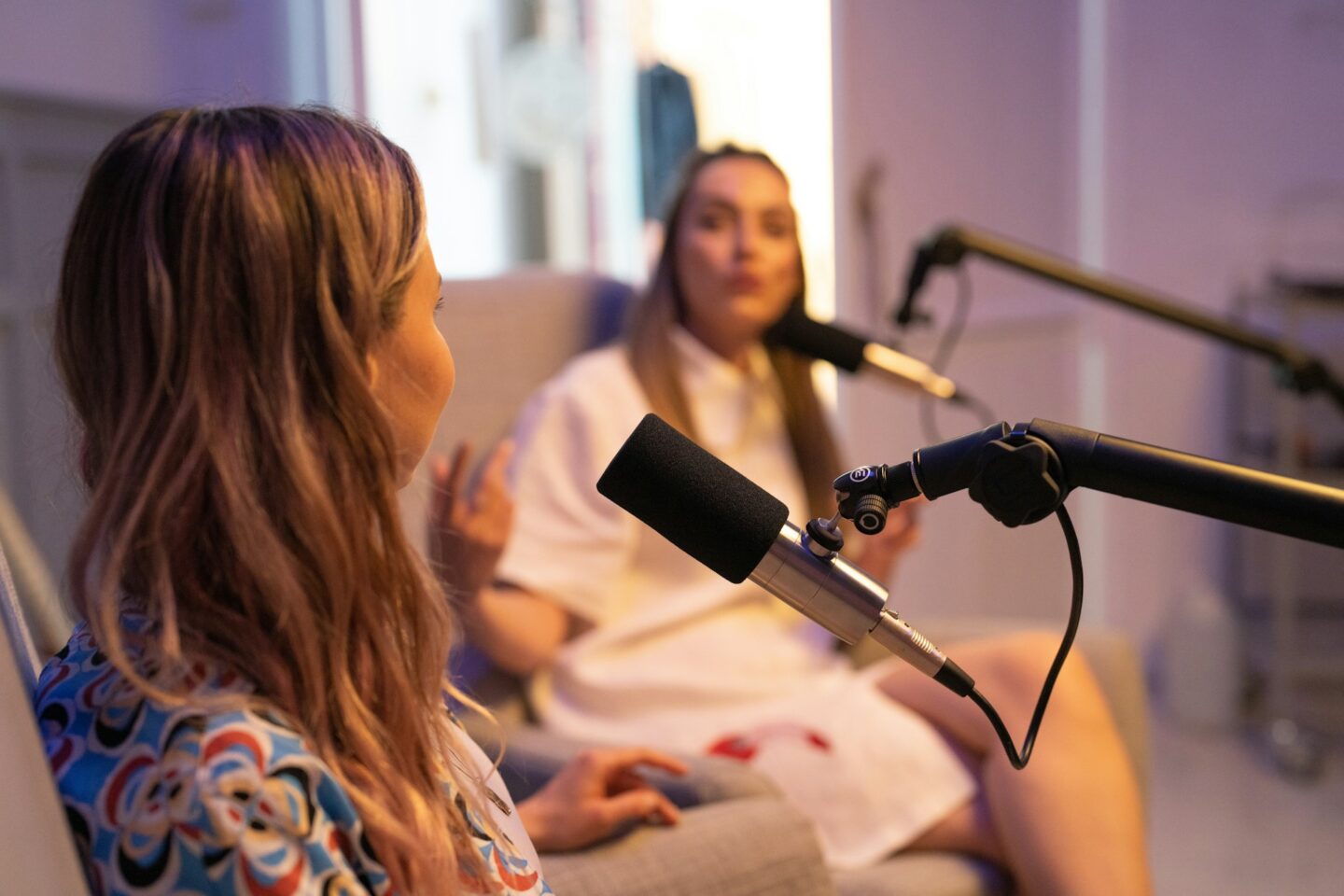
☝️ The most important facts in brief
- After graduating, some doctors decide not to work as doctors, but to work as medical journalists instead.
- There is currently no standardised training for medical journalists. However, both a medical degree and journalistic training are beneficial for this career path.
- As a medical journalist, you can work in a wide variety of fields. For example, you can write for specialist journals or work in television.
- Although the average salary as a doctor is better, journalists often have a much better work-life balance and can organise their daily lives more flexibly.
📖 Table of contents
Medical journalism is an exciting career path away from the actual field of medicine. Medical journalists inform their audience about health policy issues, new medical preparations and complex specialised content. Whether in editorial offices of specialised media, in the pharmaceutical industry or as a freelancer for television or radio: the fields of activity in medical journalism are diverse. Find out more now about working as a medical journalist, the salary and the requirements needed to enter this varied profession.
Are you interested in studying medicine?
We will be happy to advise you free of charge about your options for studying medicine, including advice on studying medicine in another EU country, which is fully recognised in Germany.
What is medical journalism?
Medical journalism is a specialised field of journalism that focuses on health topics and medical issues. As a medical journalist, you will report on topics such as new drugs, research findings and health policy.
You can be employed or freelance and work in the editorial department of a newspaper, in specialised media, television or radio.
Complex content from the world of medicine explained in an understandable way
One of the tasks of medical journalists is to present complex processes in a way that is understandable to laypeople. You prepare highly complex topics in such a way that your target group understands them. As a medical journalist, you are therefore a kind of link between the doctor and the general public.
Who can become a medical journalist?
In principle, anyone who is well versed in the subject of medicine and has the necessary journalistic skills can become a medical journalist. You should have a corresponding interest in a wide range of specialised topics, the healthcare system in general and the needs of your readers, viewers or listeners. Although it is not essential, it is certainly helpful to have already worked as a doctor in a hospital and to have gained relevant experience.
There is currently no specialised training for medical journalism
Medical journalist is not an apprenticeship. The Lateral entry of doctors is common, as they already have the medical expertise required for the profession. However, journalistic training is also useful. You can obtain this, for example, by doing a traineeship at publishing houses or press offices.
The reverse is also possible: if a journalist is interested in science and medical issues, they can acquire the necessary knowledge on these topics. You don't necessarily have to be a doctor to work as a medical journalist.
Why doctors choose medical journalism
Even though it is not necessary to be a doctor to become a medical journalist, doctors have a great advantage if they decide to enter this form of journalism. They are specialists and already have the necessary knowledge in the areas of health, diseases and treatment options. This is why many newspaper and book publishers favour applicants with a degree in medicine.
For many doctors, the main reason for deciding in favour of medical journalism is the better compatibility with family and leisure time. The fact that they are not permanently responsible for people's lives in their daily tasks can also be a great relief, as the medical profession is associated with considerable psychological stress in this respect.
The difference between authors of specialised books and medical journalists
Authors of medical textbooks have a different target group than medical journalists. Therefore, these authors usually have to be doctors and, in addition to their work as authors, usually continue to work in clinics or in teaching and research.
As a medical journalist, on the other hand, you usually speak to laypeople and therefore have to explain complex medical contexts more and make them simpler. There are also opportunities for non-medical professionals, for example as an author for a magazine or as a freelance journalist after acquiring the necessary specialised knowledge.
Not every medical journalist is a doctor
In addition to medical journalists with a degree in medicine, there are many other people working in this field. They come from a different media or scientific background, for example. What is important for all medical journalists is that they are able to shed light on the relevant topics in the healthcare system through continuous further training and in-depth research.
The different fields of activity of medical journalists
If you decide to do further training in journalism during your studies or afterwards, you will then have many different opportunities to work in medical journalism. We would now like to introduce you to some of the most common ones.
Work in the editorial department of medical journals
Specialist journals for doctors rely on good medical journalism. They are mainly staffed by people who have worked as doctors or at least studied medicine. They write articles for a specialised audience.
The field of activity in this working environment also includes proofreading texts and liaising with press offices.
Articles for non-medical professionals in print and online media
Medical journalists often do not write for doctors or the pharmaceutical industry, but address their articles to non-medical professionals. The focus here is on presenting complex issues in an understandable way.
If you are writing for laypeople, it is important not to simply use technical terms without a clear commentary. Although you are well informed about the topic, you must always put yourself in your audience's shoes and convey the content page by page in such a way that it is understood.
TV reporting and multimedia content
Medical journalism not only plays an important role in texts, but also in television and other media. Your job here is to present health topics in a visually appealing way and ensure that the articles contain a high level of valuable information.
Public relations
Authorities and health policy, but also individual clinics or medical centres, are dependent on good public relations work. As a medical journalist, you will create press releases or plan campaigns to make more people aware of the content to be communicated.
Working for the pharmaceutical industry
The pharmaceutical industry also relies on good medical journalism, particularly to disseminate information on new preparations. Depending on the assignment, the target group for your journalistic contributions can be both doctors and non-medical professionals. It is therefore important that you adapt your choice of words and the complexity of the content accordingly.
As the salary in the pharmaceutical industry is usually higher than in most other areas of medical journalism, there are relatively many applicants for the corresponding positions

Skills and knowledge required as a medical journalist
As the name "medical journalism" suggests, you need both sound medical knowledge and basic journalistic training to work in this field. Good research skills and a clear writing style are essential.
It is therefore advisable to do internships at various editorial offices after or during your studies and get valuable tips from professionals.
The role of medical journalism in society
By presenting complex medical topics in a way that the general public can understand, medical journalists can help people to make well-informed decisions. A large proportion of the population wants to be informed about difficult issues in a way that is easy to understand, and medical journalism makes an important contribution to this.
Salary and earnings as a medical journalist
As a medical journalist, you will probably earn less than you would as a doctor. However, you will also benefit from more pleasant working hours and other advantages. In general, it is not possible to make a generalised statement about pay in medical journalism, as salaries vary greatly.
Employment vs. freelance work as a medical journalist
Most medical journalists work on a freelance basis and are therefore free to negotiate their salary with the client. In this respect, high earnings are certainly possible, even if they are not particularly common.
As a rule, you can earn significantly more in permanent positions in the pharmaceutical industry, in the public health sector or in comparable jobs.
Advantages and disadvantages of working as a medical journalist
Finally, we have summarised the advantages and disadvantages of deciding against becoming a doctor and in favour of medical journalism for you:
Advantages
- Diverse subject areas
- Influence on the opinion of the target group
- Lateral entry possible without journalistic training
- More flexible working hours
- Constant exchange of knowledge with experts
Disadvantages
- Earn less than doctors in good positions
- Frequently freelance work instead of permanent employment
Free information material
Studying medicine abroad 🎉
Order your info pack now, find out more about the Studying medicine abroad and get started as a medical student!





